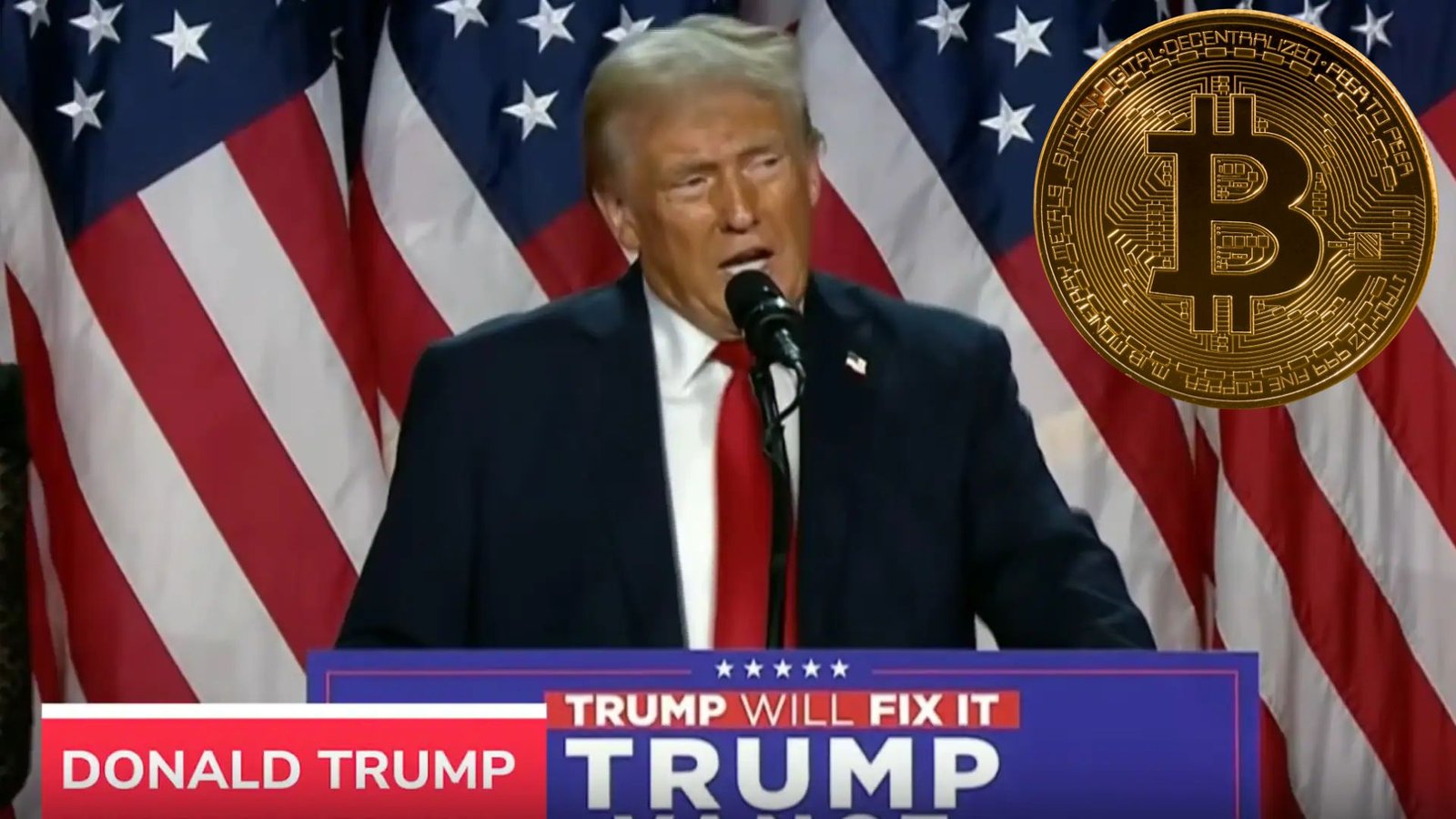The cryptocurrency market is experiencing an exciting resurgence, with Bitcoin and Dogecoin rebounding significantly while Ethereum has reached a five-month high. These price movements highlight the volatile yet opportunistic nature of the crypto market, drawing the attention of both seasoned investors and newcomers. In this detailed analysis, we will explore why these cryptocurrencies are rallying, what this means for future price trajectories, and how this presents an excellent opportunity for investing in blockchain technology as a whole. Let’s dive into the latest developments and their potential implications for the market.
Bitcoin and Dogecoin Rebound: What’s Driving the Market?
The recent rebound in Bitcoin and Dogecoin is part of a broader cryptocurrency market rally that has seen increased investor confidence and renewed optimism in blockchain technology. Several factors are contributing to the recent uptrend in these assets:
- Renewed Investor Sentiment: One of the primary drivers of the rebound is the improvement in investor sentiment towards cryptocurrencies. After several months of market consolidation, investors are once again showing interest in digital assets as a hedge against inflation and economic uncertainty. The perception of Bitcoin as a store of value, similar to gold, has gained renewed traction, and this is helping to push its price higher.
- Institutional Interest and Adoption: Institutional investors are increasingly interested in cryptocurrencies as an asset class. Bitcoin, in particular, has become a favored option for large financial institutions looking to diversify their portfolios and hedge against economic downturns. The increased adoption by major corporations and institutional players has provided a solid foundation for Bitcoin’s price, which is contributing to the ongoing rebound.
- Elon Musk’s Influence and Dogecoin Support: Dogecoin has once again benefited from the so-called “Elon Musk effect.” Musk, a long-time supporter of Dogecoin, has recently made favorable comments about the meme cryptocurrency, which has driven renewed interest and buying pressure. This has helped push Dogecoin’s price higher as retail investors flock to the cryptocurrency.
- Macroeconomic Conditions: The broader macroeconomic conditions also play a role in the rebound. With concerns about rising inflation and potential economic slowdowns, investors are looking for alternative assets to protect their wealth. Cryptocurrencies, led by Bitcoin, are increasingly seen as a viable hedge against inflation and traditional market instability.
Ethereum’s 5-Month High: What’s Behind the Surge?
While Bitcoin and Dogecoin are rebounding, Ethereum has hit a significant milestone by reaching a five-month high. Ethereum, the second-largest cryptocurrency by market capitalization, is a crucial player in the blockchain ecosystem, and its recent price surge can be attributed to several key factors:
- Growth in DeFi and NFT Activity: The rise of decentralized finance (DeFi) and non-fungible tokens (NFTs) has been instrumental in Ethereum’s recent price surge. The Ethereum network is the backbone for most DeFi projects and NFT platforms, and the increasing activity in these areas has driven demand for ETH. As more users and projects adopt Ethereum for their operations, the network’s utility grows, and so does its value.
- Anticipation of Upcoming Network Upgrades: Ethereum is on a path of continuous improvement, with network upgrades designed to enhance scalability, reduce gas fees, and improve overall performance. The recent price surge is partly due to investor anticipation of these upcoming upgrades, which are expected to make the Ethereum network more efficient and capable of handling a larger volume of transactions. The transition towards Ethereum 2.0, which aims to switch from a proof-of-work (PoW) to a proof-of-stake (PoS) consensus mechanism, is seen as a game-changer that will improve network efficiency and attract more institutional interest.
- Institutional Adoption: Like Bitcoin, Ethereum has also seen growing interest from institutional investors. Investment firms are increasingly adding ETH to their portfolios, and the launch of Ethereum-based exchange-traded products (ETPs) has made it easier for institutions to gain exposure. This institutional adoption has provided strong support for Ethereum’s price and contributed to the recent surge.
The Investment Perspective: Why Now is a Good Opportunity
The current rally in Bitcoin, Dogecoin, and Ethereum presents a compelling opportunity for investors looking to enter the cryptocurrency market or expand their existing holdings. Here’s why this might be a great time to invest in these assets and the blockchain technology that underpins them:
- Bitcoin as a Store of Value: Bitcoin’s rebound highlights its resilience and continued relevance as a store of value. With a fixed supply of 21 million coins, Bitcoin is inherently deflationary, making it an attractive hedge against inflation. The recent price movements reflect renewed interest from both retail and institutional investors, which could propel Bitcoin to new heights. Investing in Bitcoin now could mean taking advantage of the early stages of a new bull cycle.
- Ethereum’s Dominance in Blockchain Utility: Ethereum’s position as the leading platform for DeFi and NFTs makes it a cornerstone of the blockchain ecosystem. The current surge in ETH’s price is reflective of its growing utility and the increasing adoption of decentralized applications (dApps). For investors, Ethereum represents not just a digital currency but an entire ecosystem with vast potential for growth. The upcoming upgrades to the network, including the transition to Ethereum 2.0, are likely to further enhance its value proposition.
- Dogecoin’s Unique Position in the Market: While often labeled as a “meme coin,” Dogecoin has a unique position in the market due to its strong community and backing from high-profile figures like Elon Musk. The current rebound in Dogecoin’s price suggests that there is still significant interest in the asset, particularly among retail investors. For those looking for a high-risk, high-reward opportunity, Dogecoin presents a unique investment case, especially if it continues to gain mainstream traction and utility.
- Diversification Through Blockchain Technology: Investing in cryptocurrencies also means investing in the underlying blockchain technology, which has applications far beyond digital currencies. Blockchain is transforming industries by enabling secure, transparent, and decentralized transactions. From supply chain management to finance and healthcare, blockchain technology is creating new opportunities for innovation and growth. By investing in Bitcoin, Ethereum, or even Dogecoin, investors are also gaining exposure to the broader blockchain revolution.
Risks to Consider
While the current rebound presents a promising opportunity, it’s important for investors to be aware of the risks involved in the cryptocurrency market:
- Volatility: Cryptocurrencies are known for their volatility, and price swings can be dramatic. Investors must be prepared for sudden changes in market sentiment that can impact prices.
- Regulatory Uncertainty: The regulatory environment for cryptocurrencies remains uncertain in many regions. Governments could introduce new regulations that impact the trading and use of digital assets, which could affect prices.
- Market Sentiment: Cryptocurrency prices are often influenced by market sentiment, which can be fickle. Factors such as social media trends, public statements by influential figures, and global economic news can all influence the price of cryptocurrencies.
Conclusion: An Exciting Time for Crypto Investors
The recent rebound of Bitcoin and Dogecoin, along with Ethereum’s surge to a five-month high, marks an exciting period for the cryptocurrency market. These movements are not only driven by short-term market dynamics but also by the growing adoption of blockchain technology, increasing institutional interest, and the maturing of the crypto ecosystem. For investors, this presents an excellent opportunity to get involved in a market that is still in its early stages of development.
Bitcoin’s role as a store of value, Ethereum’s dominance in blockchain utility, and Dogecoin’s unique community-driven appeal all contribute to a diversified investment opportunity that could yield significant returns in the future. Moreover, investing in these assets means supporting the growth of blockchain technology, which is poised to revolutionize many industries.
As always, it is important to conduct thorough research, understand the risks, and consider your investment horizon and risk tolerance. The current rally could be the beginning of a larger trend, and those who position themselves now could benefit from the continued growth of the cryptocurrency market and the broader blockchain ecosystem. Whether you are a seasoned investor or just starting, now could be the right time to take a closer look at the opportunities that Bitcoin, Ethereum, Dogecoin, and blockchain technology present.








